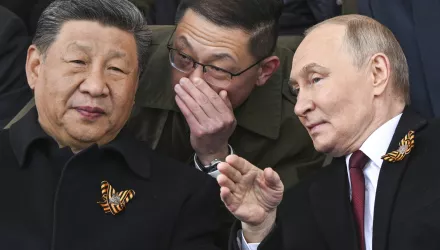BEIRUT -- Watching the British general election from Beirut as I have done reminds me why many of us in the Middle East and the world look upon the United Kingdom and other Western powers with a combination of awe and disdain, the bottom line being the role of their societies’ elements of accountability.
My awe reflects genuine respect and envy for a political process where ordinary citizens regularly get the opportunity freely to select the leaders who will determine their national policies. Those who achieve and exercise power in the UK are routinely validated or replaced by their fellow citizens, the verdict being a consequence of how those leaders did or did not use their power to improve the security and wellbeing of their society. The manner in which political leaders are held accountable for the consequences of their policies is impressive. Such a dynamic is totally absent in the Arab region, where unaccountable rulers and families spend many decades in power.
Yet I also feel some real disdain for British, American and other Western democracies because the accountability of and limits to power that is so impressive in their domestic arena is almost totally absent when it comes to foreign affairs, which I judge most directly in terms of British policies in the Middle East. In this regard, the capacity of the British people, leaders, and military forces to create long-term havoc in our region, and to continue doing so after more than a century of this, ranks as high on the scale of destruction as Britain’s democratic legacy does on the constructive side.
Virtually every major conflict spot in the region -- Iraq, Afghanistan, Palestine-Israel, Cyprus, Yemen, you name ‘em, Great Britain helped midwife them – has a “made in London” stamp on it somewhere. My main complaint is that some leading Western countries like the UK use their power to carry out foreign policies here and there without really being held accountable for the impact of their actions.
The Iraq war is probably the worst such example in recent years. Hundreds of thousands of dead, millions of refugees, immense human suffering, deep ethnic and sectarian tensions, trillions of dollars wasted on war and other direct and indirect consequences of the Anglo-American war on Iraq are already in the history books. And the war’s ripple effects will continue to destabilize the Middle East for years or even decades to come. Has anyone in the UK or the United States really paid the price for these consequences? Does this sort of impunity degrade British democracy, or it is permissible because the victims are mainly darker skinned people from the South?
Four things are wrong with this glaring divergence between politicians being held accountable for their domestic policies but not their foreign policies.
• It is a lingering form of colonial mentality that perpetuates a fundamental political imbalance, abuse of power and ethical deficiency that defined the colonial era that modern mankind has deemed unacceptable, except for this case.
• It holds out the likelihood that the same mistakes and abuse that Great Britain and other powers practiced in the past will be repeated in the future.
• It creates a massive, nearly fatal, credibility scar in the British tendency to preach democracy and the rule of law to the rest of the world, while the UK’s own power, policies and interference abroad are exempt from the ethic of accountability that is at the core of its otherwise impressive democratic legacy.
• And, when it goes on for decade after decade, it eventually pushes our societies to the breaking point, and elicits a reaction from the once hapless people in the South which we are witnessing these years in two main forms: resistance and defiance movements throughout the Middle East that fight back politically or militarily against perceived Western-Israeli abuse and double standards; and, a polarized, militaristic, often criminalized local order in many parts of the Middle East that replaces or challenges the centralized state power the British and others left behind as they withdrew from the area decades ago. (The bitter icing on this multi-layered cake is that the UK now also sends us their recycled old failures like Tony Blair, who has embraced his task as the Quartet’s special envoy to the Arab-Israeli peace process with a painfully impressive combination of standard political duplicity and innovative moral vacuousness.
There is much for the British people to celebrate in the extraordinary experience that is their parliamentary democracy. But there are also some things to ponder more diligently than has been the case to date. The difference today from decades ago is that the mistreated denizens of the global South no longer take their abuse stoically. Rather, they react passionately and sometimes violently to the moral, political and military violence that they receive from Western democracies.
Rami G. Khouri is Editor-at-large of The Daily Star, and Director of the Issam Fares Institute for Public Policy and International Affairs at the American University of Beirut, in Beirut, Lebanon.
Khouri, Rami. “Grand and Ugly Sides of British Democracy.” Agence Global, May 10, 2010



